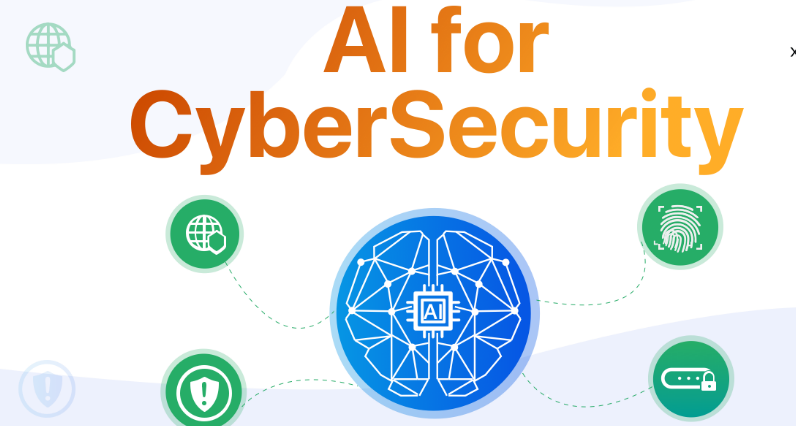
In recent years, cyber-attacks and their impact have reached unimaginable proportions. According to data from recent years, 60% of companies have experienced a cyber attack in the last year, and 65% believe there will be more and more targets.
Because of this, companies now need to develop viable solutions to these problems, but none of them will be as labour-intensive as solving the usual problems. So, AI has evolved to the point where it can handle these problems significantly.
Artificial Intelligence in Cyber Security
Traditional cybersecurity solutions are replaced by artificial intelligence, which also makes sure that cybersecurity issues are recognized and discovered early on. To predict future patterns, artificial intelligence algorithms analyze data from previous cyberattacks. Following analysis, new attacks can be predicted.
Artificial intelligence can also be taught to respond to online dangers. Organizations may speed up incident reaction times, threat identification, and security measures by implementing AI in their cybersecurity.
Use of Machine Learning
Artificial intelligence depends heavily on machine learning for its role in cybersecurity. It makes sure that without explicit programming, algorithms are learned and improved.
Machine learning is used for two main purposes in artificial intelligence.
● organizational data classification into categories.
● detecting any unexpected network activity or user behavior
Artificial Intelligence and Data Analytics, Which one is Better?

Although AI makes use of data analytics, its primary purpose is to develop cognitive abilities so that processes can be automated. On the other side, data analytics is the process of reviewing data collections to make judgments. Unlike AI, data analytics requires specialized hardware and software and is not self-learning.
Of course, it isn't as perfect as we may assume; AI has flaws as well and is vulnerable to cyberattacks. The actions taken by AI can be manipulated by hackers. Due to this manipulation, the AI may begin to classify dangerous user activity as typical or safe. The vulnerability can then be exploited by an attacker using this categorization.
Benefits of Applying AI to Cyber Security
Organizations that want to safeguard their corporate data from online threats can benefit from implementing AI in the cybersecurity ecosystem. AI provides a range of immediate and long-term advantages, including the following, in addition to its data processing and threat detecting skills.

Organize Statistical Assets
The devices, users, and apps that access information systems are accurately inventoried thanks to artificial intelligence technologies. Any possible breaches can be anticipated using this information.
Identify Harmful Attacks Ahead of Time
Companies can now foresee risks thanks to AI's cybersecurity systems, and AI itself can provide extensive information about both global and some industry-specific cyberattacks. Additionally, businesses can use this data to prioritize their actions.
Vulnerability Prediction
AI-based solutions can forecast where data breaches are likely to happen in addition to providing information about cyberattacks. These forecasts can be used by businesses to budget and allocate resources appropriately.
Conclusion
The security ecosystem must now incorporate artificial intelligence due to the dynamic developments in cybersecurity. Machine learning is used by artificial intelligence to categorize organizational data and spot odd user or network activities. AI can be used in cybersecurity systems to help find potential vulnerabilities and threats. Despite all the advantages of AI, if attackers take use of it, cybersecurity could suffer.





